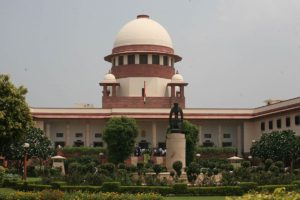The Supreme Court of India viz. Zuari Cements vs. Regional Director ESIC, Hyderabad, the Hon’ble Apex Court has held that the ESI Court has no jurisdiction to grant exemption to an establishment from the operation of the ESI Act. While doing so, the Apex Court has nullified a view to that effect taken by the High Court in an earlier round of litigation between the parties.
Section 87 of the ESI Act reads as under:
Exemption of a factory or establishment or class of factories or establishments.-The appropriate Government may by notification in the Official Gazette and subject to such conditions as may be specified in the notification, exempt any factory or establishment or class of factories or establishment in any specified area from the operation of this Act for a period not exceeding one year and may from time to time by like notification renew any such exemption for periods not exceeding one year at a time.
A close perusal of Chapter VIII of the ESI Act i.e. Sections 87 to 91A of the Act will show that only the appropriate government has been empowered to exempt any factory or establishment or class of factories or establishments in any specified area from the operation of the Act for a period not exceeding one year and may from time to time renew such exemption for a period not exceeding one year at a time. Under Section 89, the appropriate Government shall not grant exemption Under Section 87 or Section 88 unless a reasonable opportunity has been given to the Corporation to make any representation it may wish to make in this regard. A combined reading of Sections 87, 88 and 89 would go to show that it is a two tier consideration, namely, a factory or establishment as the case may be, submits an application seeking exemption and the appropriate government would scrutinize the application and afford an opportunity to the Corporation and then grant an order of exemption or reject the same as the case may be.
As per the scheme of the Act, the power to grant exemption is a plenary power given to an appropriate government. It follows that the ESI Court constituted Under Section 74 of the Act has no jurisdiction to take up the question of grant of exemption. The Court constituted Under Section 74 of the Act cannot decide such matters including the validity of an exemption notification. The order granting or denying exemption is certainly open to judicial review Under Article 226 of the Constitution of India. But the question of exemption Under Section 87 cannot be raised Under Section 75 of the Act and the ESI Court constituted Under Section 74 of the Act, cannot decide the legality or otherwise of an order relating to exemption passed by the appropriate government.
The Apex Court held that the Employees Insurance Court is a tribunal specially constituted for the purpose of deciding any controversy that may arise on the matters enumerated in Section 75 of the Act. A reading of Section 75 of the Act would show that the ESI Court has full jurisdiction to decide all the matters arising between the employer and the Corporation under the Act. Section 75 of the Act sets out the matters to be decided by the ESI Court. As per Section 75(1)(g) of the Act, ESI Court is empowered to decide any matter which is in dispute between the employer and the Corporation in respect of any contribution or benefit or other dues payable or recoverable under the Act or any other matter required to be or which may be decided by the ESI Court under the Act and such question or dispute subject to the provisions of Sub-section (2-A) shall be decided by the ESI Court in accordance with the provisions of the Act. When considered in the light of Clauses (a) to (d) in Section 75(1) of the Act, the expression “any other matter” occurring in Section 75(1)(g) only means any other dispute between an employer and corporation or a person and Corporation pertaining to the contribution or benefit or other dues payable under the Act or any other matter required to be decided by ESI Court under the provisions of the Act. Grant or refusal of exemption by the appropriate government cannot be said to be a dispute between the employer and the Corporation. For grant or refusal of exemption, a specific provision is prescribed under the Act, it cannot be brought within the ambit of “any other matter” required to be decided by the Employees’ Insurance Court under this Act.
